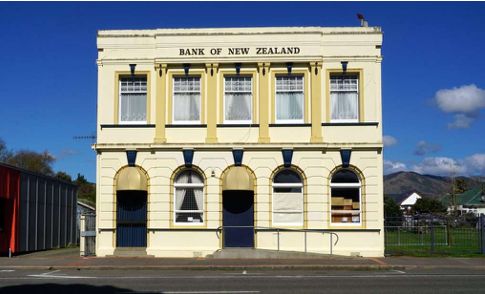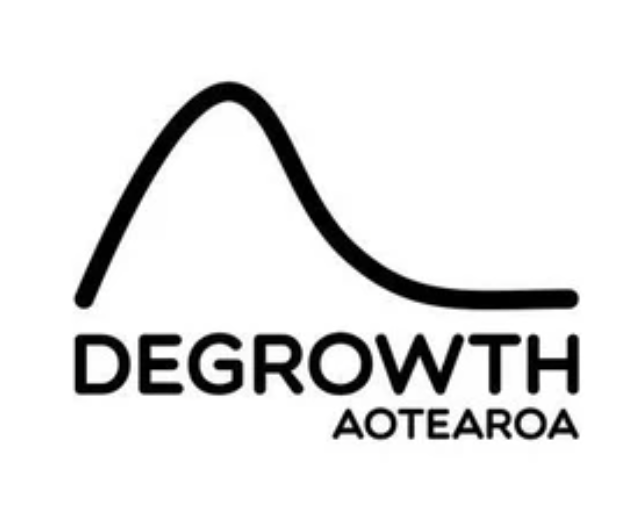The power of banks to create money as interest-bearing debt has a dangerous influence on the global economy. By allowing commercial banks to do this, we give them the power to decide what resources are mined, manufactured, and grown. And because they can also issue loans for real estate, banks effectively control the flow of money in our economy.
This can lead to an unequal distribution of wealth, as well as a destabilisation of the global financial system. Ultimately, this can cause economic hardship for many people and communities.

The Negative Consequences of Allowing Banks to Create Money as Interest-Bearing Debt
The negative consequences of allowing commercial banks to create money as interest-bearing debt are far reaching. This system gives these banks a significant amount of power and control over our economy.

- Firstly, it can result in an unequal distribution of wealth. As banks decide who to issue loans to and at what interest rates, they can inadvertently contribute to the concentration of wealth in the hands of a few. This creates a vicious cycle where the rich get richer, while the poor struggle to access necessary funds.
2. Secondly, the reliance on debt-based money creation can lead to a high level of instability in the financial system. As banks issue loans, they expand the money supply and increase the overall level of debt in the economy. If borrowers are unable to repay these loans, it can trigger a domino effect of defaults, potentially leading to financial instability and economic downturns. The contagion can spread throughout the entire financial sector.
Commercial banks’ interconnectedness can amplify the transmission of risks. This interconnectedness can also contribute to the concentration of power, as large banks may become “too big to fail” and require government bailouts, putting taxpayers at risk as seen in the global financial crisis of 2008.
3. Allowing banks to create money as interest-bearing debt is the structural fault responsible for the growth imperative. How does this happen? Well, since banks create the principle but not the interest, there is never enough money in the whole system to pay interest. This means someone misses out and has to get another loan. This expands the money supply. So the economy has to expand. More mining, more material throughput, more energy, more trashing of the planet.
4. Lastly, this system allows banks to determine what resources are prioritised for extraction, manufacturing, and cultivation. This means that banks can indirectly influence what products are produced and consumed, potentially leading to overproduction in some sectors and underinvestment in others. Sustainable industries are ignored in favour of short-term gains.
Commercial banks, with their power to create money as interest-bearing debt, have the ability to create all these systemic risks in the economy.
But for this blogpost let’s just focus on the last effect.
Commercial Banks’ Dangerous Power over Business Investment
By allowing banks to create money as interest-bearing debt, we are essentially granting them the authority to determine what resources are extracted, manufactured, and cultivated.
This influence extends beyond simply financing these activities; it encompasses the very decisions regarding what should be produced and consumed. And all this without any concern for the environmental or social consequences of their decisions.
And it is not just the primary industry like dairy they fund. There are a number of industries adjacent to dairy that need loans too e.g. a firm that produces special paint for dairy sheds. Through the issuance of loans, commercial banks control the flow of money in our economy.
They have the power to fund businesses, drive economic growth, and allocate capital to various industries. Additionally, banks play a crucial role in providing loans for real estate, effectively shaping the housing market and influencing property prices.
There is an obvious problem here. Banks, being commercial enterprises, have no concerns about whether planetary boundaries are overshot. Bank decisions can result in:-
- Soils ruined because agribusiness planted monocultures.
- Greenhouse gases increased by banks lending to fossil fuel companies.
- Clearing forests for agriculture (land use change). e.g. changing the Amazon from a carbon sink to a carbon source.
As degrowth in rich countries is becoming essential in a full world, degrowth advocates need to understand the role of banks in getting to this situation.
Banks’ Role in Determining What Gets Produced and Consumed
Through their lending decisions, commercial banks shape the direction of our economy. They can choose to invest in industries that align with their profit-making goals, often resulting in the prioritisation of sectors that generate higher returns. This can lead to overproduction in certain industries like the fashion clothing industry, while other essential sectors may be left underinvested and struggling.
By favouring certain industries through loans and financing, they determine which businesses can thrive and which ones struggle to survive. This can impact the variety and availability of goods and services in the market, limiting consumer choices and potentially distorting the economy.
Banks influence the mining industry
In the realm of mining, for example, banks may be more inclined to fund projects that promise quick returns, leading to environmentally harmful extraction practices. This leads to an emphasis on large-scale mining –operations that yield higher returns.
A Chinese mining company MMG wanting to mine zinc, copper and lead in 2021 found itself at odds with the Bob Brown Foundation conservation movement as it was to impinge on rainforests with national heritage value.
In the Dominion Republic of Congo campaigners say, “The mining industry has ravaged the landscape of the DRC. Millions of trees have been cut down, the air around mines is hazy with dust and grit, and the water has been contaminated with toxic effluents from the mining processing.”
It is clear this approach can have adverse socioeconomic and environmental consequences, as it may disregard the long-term sustainability of resource extraction and neglect the needs and rights of local communities. While this can drive economic growth in the short term, it may not serve the long-term interests of society.
Banks decide what is manufactured
In manufacturing, a focus on industries with higher profit margins might prioritise industries that outsource labour or cut corners on quality.
The fact that it is profitable means it’s fine to manufacture private planes. Or more cars. Banks in Germany or Japan funded the cars imported to New Zealand. We have 895 vehicles per 1000 people (top in the world) whereas the Democratic Republic of Congo has 4. (Hedges Company 2023)
The fact that it is profitable means that outside heaters are not just produced but heavily advertised on television.
Banks implicit in environmental damage from agribusiness including big dairy
Similarly, in agriculture, banks might favour large-scale, monoculture operations over smaller, sustainable farming practices due to their potential for higher profits. This preference can lead to an emphasis on large-scale, high-yielding practices of industrial agriculture. But they contribute to deforestation, loss of biodiversity, climate change, animal abuse and soil degradation.
This preference for industrial agriculture can sideline sustainable and environmentally friendly alternatives, such as organic farming or regenerative agriculture. Additionally, small-scale farmers and agricultural enterprises may struggle to secure loans, limiting their ability to invest in modernisation and productivity improvements.
Under the current system, commercial banks tend to favour lending toward sectors that promise high returns or quick profits.
In New Zealand bank loans to big dairy have resulted in pollution of the water table of Canterbury and in unswimmable rivers. As prices for milk solids rose, so did our dairy numbers. So over the last 30 years the number of dairy cows have doubled.
Climate Justice Taranaki’s spokesperson says, “For decades Maori have called on farmers to clean up their act and return stolen lands but we have just seen further pollution of waterways, reefs, soils, air and the spread of inequality in our communities by rich, powerful landowners.”
So what have been the effects worldwide? Humans and their livestock now account for 96% of mammals biomass, according to a 2018 study. This leaves wild animals at only 4%. Most of the world’s agricultural land is for raising animals for food for our species.
How can the influence of banks be neutralised?
It takes a government decision to slow or ban damaging industries. For example for the first time in history, Australia in February 2023 banned a coal mine north of Brisbane. And under Prime Minister Jacinda Ardern, New Zealand stopped issuing permits for oil exploration.
The only other way is for climate action organisations like 350.org to spend hours of volunteer time campaigning to get commercial banks to stop lending to fossil fuel companies. Ethical investment firms also steer their investors away from fossil fuels.
A Comparison of Business Loans versus Real Estate Loans
When it comes to commercial banking, two types of loans stand out: business loans and real estate loans.
Business loans are designed to fund various business activities, such as expansion, equipment purchases, and inventory financing. They enable businesses to invest in their operations and create job opportunities. Business loans can fuel entrepreneurship and support the development of new products and services.
On the other hand, real estate loans are primarily used to finance property purchases and development. These loans have a significant impact on the housing market and property prices. They influence not only homeownership rates but also the availability of rental properties and overall housing affordability.
Banks benefit greatly from rising land prices. That is why they love real estate loans. Small business owners, in order to get a loan, often have to mortgage their house, showing again that banks prefer the security of land.
The Need for Reforms to Address the Root Cause of the Problem
It is clear that the power banks possess in creating money as interest-bearing debt has far-reaching implications. These implications include an unequal distribution of wealth, an imbalanced allocation of resources, systemic risks within the financial system, damage to the environment, displacement of indigenous people.
Only through addressing this fundamental problem can we hope to achieve a fair and sustainable economic system that benefits all individuals and communities.
We need a system where the allocation of resources is not solely driven by profit motives but also takes into consideration the needs of society as a whole.
Through comprehensive reforms, we can pave the way for a more inclusive and sustainable future, where the creation and allocation of money serve the needs of all individuals and communities.



 Antarctic Heritage Trust: NZ-made ‘Cutting-Edge’ VR Experience Tours The UK
Antarctic Heritage Trust: NZ-made ‘Cutting-Edge’ VR Experience Tours The UK Brian Gaynor Business Journalism Initiative: Brian Gaynor Initiative Business Journalism Funding Award Moves To Rolling Applications
Brian Gaynor Business Journalism Initiative: Brian Gaynor Initiative Business Journalism Funding Award Moves To Rolling Applications  Inland Revenue: Fifth Anniversary Of The SBC Loans - Time To Repay
Inland Revenue: Fifth Anniversary Of The SBC Loans - Time To Repay Te Runanga o Ngati Hinemanu: First Marae Based Fresh Water Testing Science Lab Grand Opening 16-17 May 2025
Te Runanga o Ngati Hinemanu: First Marae Based Fresh Water Testing Science Lab Grand Opening 16-17 May 2025 Raise Communications: NZ Careers Expo Kicks Off National Tour Amid Record Unemployment
Raise Communications: NZ Careers Expo Kicks Off National Tour Amid Record Unemployment Hugh Grant: How To Build Confidence In The Data You Collect
Hugh Grant: How To Build Confidence In The Data You Collect